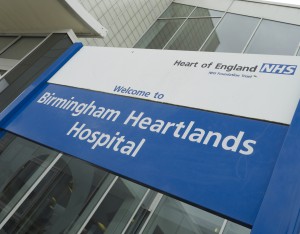 Hospital specialists at Heartlands Hospital are calling for locals to have a greater awareness of glaucoma this week, an eye condition which affects the vision of around 480,000 people in the country every year and is the nation’s second most common cause of blindness.
Hospital specialists at Heartlands Hospital are calling for locals to have a greater awareness of glaucoma this week, an eye condition which affects the vision of around 480,000 people in the country every year and is the nation’s second most common cause of blindness.
Consultant ophthalmologist, Mr Anil Negi, said: “Glaucoma is caused by a reduced outflow of fluid from the eye leading to an increase in the pressure inside the eye. This then leads to damage to the optic nerve which connects the eye to the brain and helps us see. Over the long term the optic nerve can become permanently damaged which can lead to blindness if it is not treated. As there are often no early warning signs or symptoms of having the condition, this is why it is often known as the ‘silent stealer of sight’, and why it is vitally important that people go to their eye examinations.”
Mr Negi continues: ““The older you get, the more likely you are to develop the condition. One in 100 people aged 40 and over have glaucoma, increasing to nearly one in 10 after the age of 70.
“Due to possible genetic factors, people of African and Caribbean descent are four to five times more likely to develop glaucoma and also have delayed diagnosis of the condition. If you have a close relative who has the condition, you may have an increased risk of developing it as are those with diabetes.
“Glaucoma damage is preventable and there are treatments available to help reduce the risk of progressive vision loss: eye drops are the most common form of treatment and a small but significant proportion of patients require laser treatment or surgery. I’d urge locals to have regular eye examinations. Those who are aged 40 or over who have relatives diagnosed with glaucoma are entitled to a free NHS eye examination.”
For more information about the ophthalmic services the Trust provides, visit the Trust’s ophthalmic services website at www.heartofengland.nhs.uk/opthamology/






